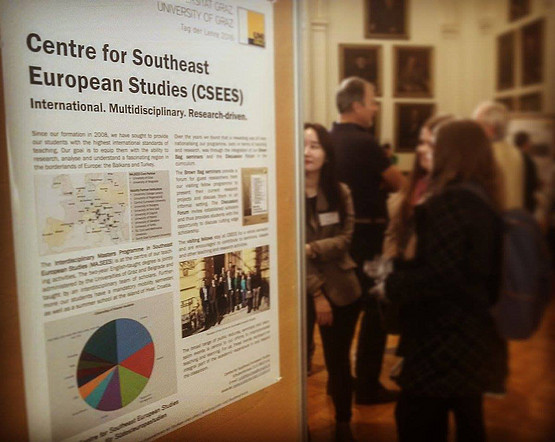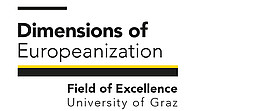Program Added Value

The program is embedded in a university with broad interdisciplinary expertise on SEE and a long-standing interest in the themes explored in the program, as well as one of the five university-wide fields of excellence. As one of the leading institutions of the study of SEE globally, the University of Graz uniquely represents the advantages of being both inside and outside the region. The depth and breadth of this experience and engagement constitute the foundations of and provide a key impetus for the PhD program.
The program draws on an existing doctoral program, yet also offers new innovative forms of doctoral training closely linked to the larger research agenda of the faculty; it also focuses on the development of skills. The doctoral program unites several research projects conducted by faculty members and also links the PhD students involved with the faculty members’ active research. In addition to existing research projects, several research projects on related topics are planned or under review and will reinforce the doctoral program. The CSEES’ policy-oriented focus on Europeanization processes also reinforces the policy component and related skills of the PhD students.
The CSEES has emerged as an internationally oriented, English-speaking, multi-disciplinary center of research and teaching, attracting and producing some of the most high-impact and cutting-edge scholarship on the region. The PhD students will also benefit first-hand from the Centre’s strong research orientation. By participating in numerous conferences, lectures, workshops, discussion forums, and weekly seminars organized by CSEES and the University of Graz, they are immersed in a dynamic academic environment where they will be exposed to the latest research on SEE and Europeanization.
The Field of Excellence Dimensions of Europeanization, closely interlinked with the program, brings together more than 70 researchers from five faculties at the university, offers PhD students integration in diverse research fields of the university, and underlines the university commitment to the research themes of the program.
The researchers at the university working on Southeastern Europe constitute a multinational and interdisciplinary group that embodies the critical multi-dimensional approach towards Europeanization that the PhD program intends to offer. Adding to this international and scholarly diversity is the active presence of six to eight visiting fellows at the Centre each semester. Ranging from PhD students and post-doctoral researchers to senior scholars and practitioners, visiting fellows work at the Centre and advance and share their research with the academic community. Alongside learning from and working directly with the faculty, the students of the PhD program have the chance to meet, follow the works of, and collaborate with the visiting fellows. In short, through their participation in the program, the students become part of a firmly established and ever-growing network of scholars, professionals, and institutions that represent the state-of-the-art in thinking, researching, and producing ideas and policies on SEE and Europeanization. The PhD experience places them in an uniquely advantageous position in pursuit of their career plans beyond the PhD, whether in academia, government, civil society, or the private sector.
Speaker
Florian Bieber
Zentrum für Südosteuropastudien
Schubertstraße 21/I, 8010 Graz




